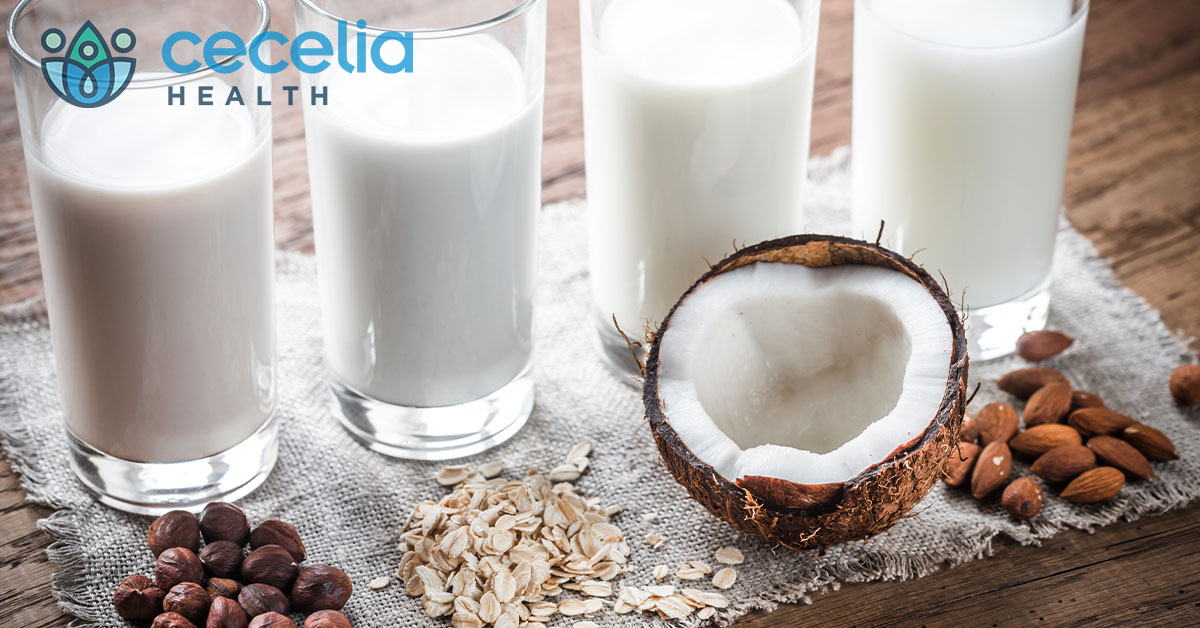There are several benefits to incorporating dairy daily. Dairy plays a beneficial role in bone health through calcium, vitamin D, and phosphorus. Potassium in dairy products may help with your blood pressure. Dairy also provides protein, which offers energy and helps build and repair muscle mass.
There are a variety of reasons someone may choose to incorporate alternatives to dairy, but it can be overwhelming to know how to substitute dairy products with equal quality nutritional value. Some dairy substitutes offer a similar nutrition content to dairy products, where other substitutes do not. For example, fortified soy products are comprised of similar nutrients, where other plant-based milks are not comparable in their nutrient content.
Here are three things to consider when incorporating dairy substitutes:
1. Are the dairy substitutes fortified in micronutrients, such as calcium, vitamin D, and/or vitamin B12? Compare the products by looking at the nutrition facts panel. Most products will list what the product is fortified with and how much of your percent daily value is present in calcium and vitamin D. To learn more about the percent daily value of a product, read this article from the FDA titled “Daily Value on the New Nutrition and Supplement Facts Labels”.
2. Does the dairy substitute offer a complete or comparable protein? Milk-based proteins offer a complete protein because they contain all essential amino acids. Some plant-based proteins do not offer a complete protein; therefore, it is important to incorporate complementary proteins into your day to consume all essential amino acids. Most Americans consume adequate protein through complete protein sources or complementary protein sources. If you are not sure if you are incorporating a balanced intake of nutrients, consider speaking with your healthcare provider or a Registered Dietitian. To learn more about the importance of protein, view this blog from Cecelia Health titled “The Importance of Protein for Your Health”.
3. How does the sugar content of your dairy substitute compare to a similar milk-based product? Some dairy substitutes are comparable in the number of added sugars, where others are much higher. The nutrition facts panel reviews the total sugars and the added sugars in a product. Consider comparing the added sugar content to ensure you are choosing a healthful alternative with the lowest added sugars.
There are several dairy substitutes for milk, cheese, butter, ice cream, and yogurt. Here is a list of dairy alternatives:
- Milk: Soy, almond, oat, rice, cashew, coconut, flaxseed
- Cheese: Soy, pea-protein, cashew, almonds
- Butter: Nut-based alternatives or blends made with vegetable oils
- Ice cream: Soy, coconut, almond, cashew
- Yogurt: Soy, almond, coconut
There are several benefits to incorporating dairy daily to ensure you consume adequate calcium, vitamin D, phosphorus, potassium, and protein. However, it may be necessary to include a dairy substitute in place of a milk-based product. With the numerous alternatives out there, it is challenging to select a comparable substitute. By considering the nutrition content of a dairy substitute, you can rest assured that you are selecting a comparable substitute that meets your needs.
